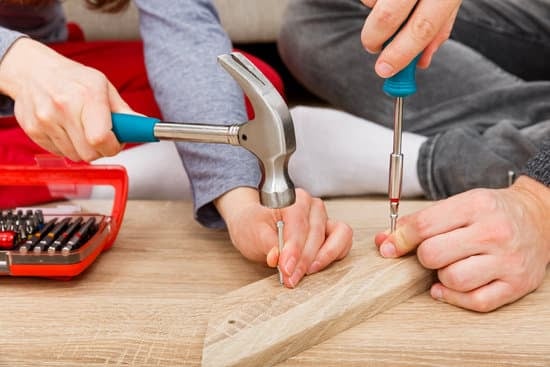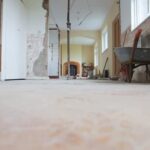Should I improve my home? It’s a question that many homeowners ask themselves at some point. Home improvement projects can range from simple updates to major renovations, and the decision to invest in these improvements should not be taken lightly.
Understanding the importance of home improvement is essential in making informed decisions about your property. In this article, we will explore the various aspects of home improvement, including assessing your home, weighing the pros and cons, budgeting for improvement, DIY vs. hiring a professional, adding value to your home, improving energy efficiency, and enhancing quality of life.
Assessing the current state of your home is crucial in determining whether or not improvement projects are necessary. Identifying areas that need improvement can range from cosmetic updates to addressing structural issues. Understanding where your home stands in terms of functionality and aesthetics will help guide your decision-making process when it comes to making improvements.
We will also delve into the pros and cons of home improvement, providing insight into the potential benefits and drawbacks associated with undertaking these projects. Additionally, we will offer tips for creating a realistic improvement budget and discuss the suitability of DIY projects versus hiring a professional for certain tasks.
Whether you are considering improving energy efficiency or enhancing the quality of life within your home, this article aims to provide valuable information to help you make informed decisions about investing in home improvement.
Assessing Your Home
Exterior
One of the first areas to assess when considering home improvement is the exterior of your property. Take a walk around your home and carefully inspect the condition of the roof, siding, windows, doors, and landscaping. Pay attention to any signs of wear and tear, such as cracked paint, warped wood, or overgrown vegetation. Additionally, consider whether the exterior style of your home matches your personal aesthetic and if there are any improvements that could enhance its curb appeal.
Interior
Next, evaluate the interior of your home room by room. Look for any structural issues such as water damage, cracks in the walls or foundation, or outdated fixtures and appliances. Consider whether the layout and functionality of each space meet your needs or if there are any areas that could benefit from reconfiguration or expansion. Additionally, take note of any cosmetic updates that can freshen up the look of your home such as new paint, flooring, or lighting.
Mechanical Systems
Lastly, don’t overlook the mechanical systems in your home such as heating, cooling, plumbing, and electrical. Regular maintenance is crucial for these systems to remain efficient and reliable. Watch out for signs of aging or malfunctioning equipment that may need to be replaced or upgraded to improve energy efficiency and overall performance. It’s important to address any potential safety hazards or code violations related to these systems during your assessment.
Pros and Cons
When considering whether to improve your home, it’s important to weigh the benefits and drawbacks. One of the main advantages of home improvement is that it can increase the value of your property. By making upgrades and renovations, you can make your home more attractive to potential buyers if you ever decide to sell. Additionally, certain improvements can also enhance the energy efficiency of your home, leading to cost savings on utility bills.
On the other hand, one of the main disadvantages of home improvement is the cost involved. Renovations and upgrades can be quite expensive, especially if you’re considering major projects like a kitchen remodel or adding an extra room. It’s crucial to carefully consider your budget before committing to any improvement project, as going over budget can lead to financial strain.
Another drawback to consider is the inconvenience that may come with home improvement projects. Depending on the scope of the project, there may be disruptions to your daily routine and living space as work is being done on your home. This should be taken into account, especially if you have a busy household or little flexibility in terms of where you could stay during renovations.
| Advantages | Disadvantages |
|---|---|
| Increase property value | High cost |
| Enhance energy efficiency | Inconvenience during renovation |
Budgeting for Improvement
When it comes to home improvement, one of the most important steps in the process is creating a realistic budget. Without a clear and comprehensive budget, it’s easy to overspend and end up with unfinished projects. To help you avoid this situation, here are some tips for creating a realistic improvement budget.
First, take the time to assess your home and identify areas that need improvement. This will help you prioritize which projects are most important and where to allocate the majority of your budget. Whether it’s updating an outdated kitchen or fixing structural issues, knowing exactly what needs to be done will allow you to create a more accurate budget.
Once you have a clear understanding of the scope of your home improvement project, research the average costs associated with similar projects in your area. This will give you a baseline for what to expect in terms of expenses. It’s also important to factor in unexpected costs or contingencies into your budget. Planning for unforeseen expenses can prevent major financial stress if something unexpected arises during the project.
| Aspect | Tips |
|---|---|
| Assessing Your Home | Identify areas that need improvement to prioritize projects. |
| Research Costs | Use average costs for similar projects as a baseline. |
| Factor in Contingencies | Plan for unexpected expenses or additional costs that may arise during the project. |
DIY vs Hiring a Professional
When considering home improvement projects, one of the most important decisions to make is whether to tackle the project yourself or hire a professional contractor. There are certain projects that are well-suited for a DIY approach, while others may require the expertise and skill of a professional. It’s essential to carefully assess the scope and complexity of the project before making this decision.
Simple cosmetic improvements such as painting walls, installing new fixtures, or even laying down laminate flooring are typically suitable for a DIY approach. These types of projects can be easily completed with the right tools and a bit of research and preparation.
However, when it comes to more complex tasks such as electrical work, plumbing, or major structural changes, it’s often best to hire a licensed professional. These types of projects require specialized knowledge and skills to ensure they are completed safely and up to code.
Before deciding whether to tackle a home improvement project yourself or hire a professional, it’s important to consider your own capabilities, available time, and budget. While DIY projects can save money on labor costs, they require careful planning and execution to avoid costly mistakes.
On the other hand, hiring a contractor can provide peace of mind knowing that the work will be done correctly and efficiently. Ultimately, weighing the benefits and drawbacks of each approach will help you make an informed decision on how to proceed with your home improvement project.
Adding Value to Your Home
Curb Appeal and First Impressions
One of the most effective ways to increase the value of your home is by improving its curb appeal. This can include simple tasks such as maintaining the lawn, landscaping, and painting the exterior of the house. The first impression a potential buyer gets when they arrive at your property can greatly influence their decision, so investing in the exterior of your home is essential.
Kitchen and Bathroom Renovations
Renovating the kitchen and bathrooms are among the best ways to add value to your home. These are considered high-traffic areas and can have a significant impact on a home’s resale value. Updating outdated appliances, refreshing cabinets and countertops, replacing old fixtures, and adding modern touches can make a big difference in how buyers perceive the overall value of your property.
Additional Living Space
If you have unused space or an unfinished basement or attic, consider converting it into a functional living space. Adding an extra bedroom, creating a home office, or finishing a basement to create a family room can significantly increase the value of your home. Buyers often appreciate additional living spaces that can serve different purposes, making it a worthwhile investment to improve your property’s value.
Improving Energy Efficiency
When considering whether to improve your home, it’s important to take into account the potential benefits of making your living space more energy efficient. Not only can improving energy efficiency contribute to a healthier environment, but it can also lead to significant savings on utility costs over time. Here are some ways you can make your home more eco-friendly and save money on energy expenses:
- Upgrade to energy-efficient appliances: Consider replacing old, inefficient appliances with newer models that have been designed with energy conservation in mind. Look for appliances with an ENERGY STAR label, which indicates that they meet strict energy efficiency guidelines set by the U.S. Environmental Protection Agency and the Department of Energy.
- Install programmable thermostats: By installing a programmable thermostat, you can better control the heating and cooling of your home, ensuring that energy is not wasted when no one is home or during times when less heating or cooling is needed.
- Improve insulation: Proper insulation is crucial for maintaining a comfortable indoor environment while reducing the need for excessive heating or cooling. Check areas such as attics, walls, and basements for adequate insulation and consider adding more if necessary.
- Use energy-efficient lighting: Switching to LED or CFL light bulbs can result in significant energy savings compared to traditional incandescent bulbs. These types of lighting use less electricity and have a longer lifespan, reducing the frequency of bulb replacements.
By implementing these energy-saving strategies in your home improvement plans, you can create a more environmentally friendly living space while simultaneously lowering your monthly utility expenses. Making a commitment to improving energy efficiency not only benefits you as a homeowner but also contributes positively to broader environmental conservation efforts.
Improving Quality of Life
Home improvement projects go beyond just increasing the value of your home or making it more energy-efficient. These projects can also greatly enhance the quality of life for you and your family. By improving the comfort and livability of your home, you can create a space that is not only visually appealing but also functional and enjoyable to live in.
One of the main ways that home improvement projects can enhance quality of life is by creating a more comfortable and inviting living space. This can include renovating or upgrading key areas such as the kitchen, bathrooms, bedrooms, or living room to make them more enjoyable and functional for everyday use. By making these spaces more comfortable and aesthetically pleasing, you can create a home environment that promotes relaxation, happiness, and well-being.
In addition to improving comfort, home improvement projects can also enhance livability by increasing functionality and convenience. This may involve adding storage solutions, creating more open floor plans, or incorporating smart home technology to streamline daily tasks. By making these improvements, you can create a home that is not only comfortable but also easier to live in, allowing you to spend less time on maintenance and more time enjoying your living space.
Conclusion
In conclusion, the decision to invest in home improvement should not be taken lightly. Assessing the current state of your home and identifying areas that need improvement is the first step in this process. By weighing the benefits and drawbacks of home improvement, you can make a more informed decision about which projects are worth pursuing.
Budgeting for improvement is essential in order to avoid overspending and financial strain. Creating a realistic improvement budget will help you prioritize projects and allocate funds accordingly. Additionally, considering whether a project is suitable for DIY or if it requires hiring a professional can also impact your decision-making process.
Ultimately, investing in home improvement can add value to your property, improve energy efficiency, and enhance the overall quality of life for you and your family. Whether it’s increasing resale value or simply creating a more comfortable living space, carefully considering the potential benefits of home improvement can help you make the best decision for your situation.
In the end, improving your home is an investment that can have long-lasting benefits for both your property and your well-being.
Frequently Asked Questions
Are Home Improvements Worth It?
Home improvements can be worth it for a variety of reasons. They can increase the value of your home, improve its functionality, and even enhance its curb appeal.
Additionally, certain renovations may help reduce energy costs and make your living space more comfortable. However, the worth of home improvements depends on factors such as the specific upgrades made, the cost of the renovations, and the local real estate market.
Why Should I Improve My Home?
Improving your home can bring numerous benefits, including increased property value, improved quality of life, and enhanced aesthetic appeal. By investing in upgrades such as kitchen or bathroom renovations, energy-efficient windows or doors, or landscaping improvements, you can create a more enjoyable living environment for yourself and potentially attract future buyers if you decide to sell.
Are House Upgrades Worth It?
House upgrades can be worth it under certain circumstances. Renovations that add significant value to your home or improve its functionality are generally considered worthwhile investments.
However, it’s important to carefully consider the cost of upgrades versus the potential return on investment (ROI). While some improvements may substantially increase your home’s resale value and appeal to potential buyers, others may not provide as much financial benefit in the long run.

I’m thrilled to have you here as a part of the Remodeling Top community. This is where my journey as an architect and remodeling enthusiast intersects with your passion for transforming houses into dream homes.





